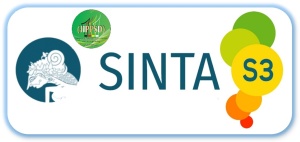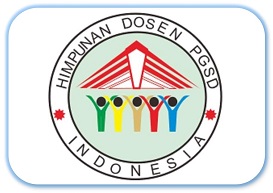Enhancing Elementary Mathematics Education: The Impact of ICT-Assisted Contextual Learning Models on Learning Outcomes, Cognitive Development, and Student Engagement
 ), Abna Hidayati(2), Fardatil Aini Agusti(3), Sartono Sartono(4), Non Syafriafdi(5),
), Abna Hidayati(2), Fardatil Aini Agusti(3), Sartono Sartono(4), Non Syafriafdi(5), (1) Universitas Negeri Padang, Kota Padang
(2) Universitas Negeri Padang, Kota Padang
(3) Universitas Negeri Padang, Kota Padang
(4) Universitas Negeri Padang, Kota Padang
(5) Universitas Riau, Kota Pekanbaru
 Corresponding Author
Corresponding Author
DOI : https://doi.org/10.24036/jippsd.v8i2.130334
Full Text:
 Language : en
Language : en
Abstract
This research examined how ICT-supported contextual learning approaches impact elementary students' math learning, cognitive growth, and participation. A quasi-experimental study was conducted with 120 fifth-grade students from four schools in Padang, West Sumatra, Indonesia, who were separated into experimental and control groups. The experimental group was taught using contextual learning models assisted by ICT, while the control group received conventional instruction. Standardized mathematics achievement tests, cognitive development assessments, and student engagement and motivation measures were used to collect data. Significant progress was noted in the experimental group for all measures, with substantial effects seen in academic performance (d = 1.46), cognitive growth (d = 1.16), involvement (d = 1.45), and drive (d = 1.47). These results indicate that incorporating ICT into contextual learning can improve elementary math education through better academic results, cognitive growth, and increased student participation and drive. The research adds to the increasing number of studies on incorporating technology in early childhood education and offers insights into educational policies and practices.
Keywords
References
Abedi, E. A. (2023). Tensions between technology integration practices of teachers and ICT in education policy expectations: implications for change in teacher knowledge, beliefs and teaching practices. Journal of Computers in Education, 0123456789. https://doi.org/10.1007/s40692-023-00296-6
Apriani, E., & Handrianto, C. (2021). Empowering ICT Potentials in English Language Teaching. … and Language …, 10(2), 42–48.
Bang, H. J., Li, L., & Flynn, K. (2023). Efficacy of an Adaptive Game-Based Math Learning App to Support Personalized Learning and Improve Early Elementary School Students’ Learning. Early Childhood Education Journal, 51(4), 717–732. https://doi.org/10.1007/s10643-022-01332-3
Cohen, J. (2013). Statistical power analysis for the behavioral sciences. routledge. https://www.taylorfrancis.com/books/mono/10.4324/9780203771587/statistical-power-analysis-behavioral-sciences-jacob-cohen
Cohen, L., Manion, L., & Morrison, K. (2017). The ethics of educational and social research. In Research methods in education (pp. 111–143). Routledge. https://www.taylorfrancis.com/chapters/edit/10.4324/9781315456539-7/ethics-educational-social-research-louis-cohen-lawrence-manion-keith-morrison
Cook, T. D. (1979). Quasi-experimentation: Design and analysis issues for field settings. Rand McNaly College Publishing. https://dickyh.staff.ugm.ac.id/wp/wp-content/uploads/2009/ringkasan buku quasi-experimentakhir.pdf
Cousins, E. W. (2023). An Investigation of an Intervention Embedded in Summer Bridge Programming for Promoting the Self-Regulated Learning and Achievement of Student-Athletes. https://digitalcommons.odu.edu/stemps_etds/140/
Darling-Hammond, L., Flook, L., Cook-Harvey, C., Barron, B., & Osher, D. (2020). Implications for educational practice of the science of learning and development. Applied Developmental Science, 24(2), 97–140. https://doi.org/10.1080/10888691.2018.1537791
de Brito Lima, F., Lautert, S. L., & Gomes, A. S. (2021). Contrasting levels of student engagement in blended and non-blended learning scenarios. Computers & Education, 172, 104241.
Fredricks, J. A., Blumenfeld, P. C., & Paris, A. H. (2004). School Engagement: Potential of the Concept, State of the Evidence. Review of Educational Research, 74(1), 59–109. https://doi.org/10.3102/00346543074001059
Giannoutsou, N., Ioannou, A., Timotheou, S., Miliou, O., Dimitriadis, Y., Cachia, R., Villagrá-Sobrino, S., & Martínez-Monéz, A. (2024). Unpacking the impact of digital technologies in Education. Joint Research Centre. https://publications.jrc.ec.europa.eu/repository/bitstream/JRC132998/JRC132998_01.pdf
Grandison, L. A. (2024). Using Self-Regulated Learning to Increase Academic Performance in NCAA Student-Athletes [Walden University].
Hülshoff, A., & Jucks, R. (2024). Pre-service English teachers‘ approaches to technology-assisted teaching and learning: Associations with study level, self-efficacy and value beliefs. Computers and Education Open, 7(January), 100199. https://doi.org/10.1016/j.caeo.2024.100199
Khan, Y. (2023). ICT integration in four schools situated in poor socio-economic contexts in the Western Cape [Stellenbosch: Stellenbosch University]. https://scholar.sun.ac.za/handle/10019.1/126997
Latchem, C. (2018). 21St Century Learning, Technology and the Professional Development of Teachers. Education and Self Development, 13(1), 10–18. https://doi.org/10.26907/esd13.1.02
Le, H. Van, & Nguyen, L. Q. (2024). Promoting L2 learners’ critical thinking skills: the role of social constructivism in reading class. 9, 1241973. https://www.frontiersin.org/articles/10.3389/feduc.2024.1241973/full
Nugroho, R. D., & Sunjaya, T. (2021). Evaluation of Online Teaching of Skill and Theory Subject of Japanese Language during Covid-19 Pandemic. Proceeding International Seminar ECKLL VIII . Universitas Dr. Soetomo, Surabaya., 246–252. http://repository.unitomo.ac.id/id/eprint/3152
Passeggia, R., Testa, I., Esposito, G., Picione, R. D. L., Ragozini, G., & Freda, M. F. (2023). Examining the Relation Between First-year University Students’ Intention to Drop-out and Academic Engagement: The Role of Motivation, Subjective Well-being and Retrospective Judgements of School Experience. Innovative Higher Education, 48(5), 837–859. https://doi.org/10.1007/s10755-023-09674-5
Piaget, J. (1952). The origins of intelligence in children. International University. http://www.bxscience.edu/ourpages/auto/2014/11/16/50007779/Piaget When Thinking Begins10272012_0000.pdf
Qureshi, M. A., Khaskheli, A., Qureshi, J. A., Raza, S. A., & Yousufi, S. Q. (2023). Factors affecting students’ learning performance through collaborative learning and engagement. Interactive Learning Environments, 31(4), 2371–2391. https://doi.org/10.1080/10494820.2021.1884886
Ryan, R. M., & Deci, E. L. (2000). Self-determination theory and the facilitation of intrinsic motivation, social development, and well-being. American Psychologist, 55(1), 68. https://psycnet.apa.org/journals/amp/55/1/68/
Sadaghian, S., Marandi, S. S., & Iravani, H. (2020). Autonomous language learning in a work-cycle: Learners’ perceptions, beliefs and behaviors. SiSal Journal, 11(2), 66–85. https://doi.org/10.37237/110202
Skinner, E. A. (2023). Four Guideposts toward an Integrated Model of Academic Motivation: Motivational Resilience, Academic Identity, Complex Social Ecologies, and Development. In Educational Psychology Review (Vol. 35, Issue 3). Springer US. https://doi.org/10.1007/s10648-023-09790-w
Suman, R. S., Moccia, S., Chinnusamy, K., Singh, B., & Regin, R. (2023). Handbook of research on learning in language classrooms through ICT-based digital technology. IGI Global.
Sung, Y. T., Chang, K. E., & Liu, T. C. (2016). The effects of integrating mobile devices with teaching and learning on students’ learning performance: A meta-analysis and research synthesis. Computers and Education, 94, 252–275. https://doi.org/10.1016/j.compedu.2015.11.008
Veresov, N., & Veraksa, N. (2023). Digital games and digital play in early childhood: a cultural-historical approach. Early Years, 43(4–5), 1089–1101. https://doi.org/10.1080/09575146.2022.2056880
Vygotsky, L. S. (1978). Mind in society: The development of higher psychological processes (Vol. 86). Harvard university press.
Wei, N., Peng, W., Sindakis, S., Chang, F., & Su, J. (2023). The Role of Intrinsic Motivation in Online Teaching Systems: From the Collision of Knowledge Management and Information Technology. Journal of the Knowledge Economy, 0123456789. https://doi.org/10.1007/s13132-023-01516-1
Weiland, C., Moffett, L., Rosada, P. G., Weissman, A., Zhang, K., Maier, M., Snow, C., McCormick, M., Hsueh, J. A., & Sachs, J. (2023). Learning experiences vary across young children in the same classroom: evidence from the individualizing student instruction measure in the Boston Public Schools. Early Childhood Research Quarterly, 63, 313–326. https://doi.org/10.1016/j.ecresq.2022.11.008
 Article Metrics
Article Metrics
 Abstract Views : 320 times
Abstract Views : 320 times
 PDF Downloaded : 36 times
PDF Downloaded : 36 times
Refbacks
- There are currently no refbacks.

This work is licensed under a Creative Commons Attribution 4.0 International License.







